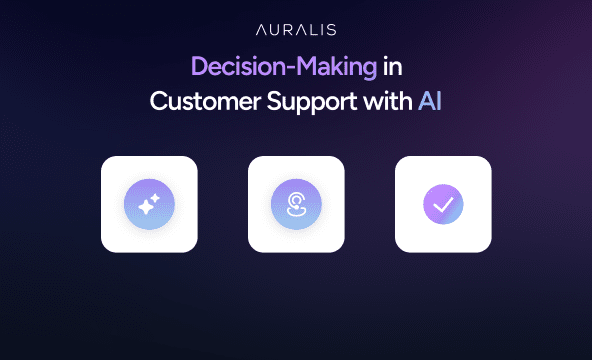AI decision-making tools
AI decision-making tools are transforming how businesses make critical decisions by providing data-driven insights, improving accuracy, and increasing operational efficiency. These tools leverage artificial intelligence to analyze large volumes of data, recognize patterns, and offer actionable recommendations, which can help organizations make smarter, faster, and more informed decisions.
One of the primary advantages of AI decision-making tools is their ability to process vast amounts of data at high speed. Traditional decision-making often involves manually analyzing data, which can be time-consuming and prone to human error. AI, on the other hand, can sift through massive datasets in real time, identify trends, and make predictions based on historical information. This allows businesses to make decisions with greater precision, reducing the risk of errors and increasing the likelihood of positive outcomes.
AI decision-making tools are also highly effective in predictive analytics. By utilizing machine learning algorithms, these tools can analyze past performance and identify future trends or potential issues. For example, AI can help businesses predict customer behavior, such as purchasing patterns or churn rates, allowing companies to adjust their strategies accordingly. This predictive power is particularly useful in industries such as retail, finance, and healthcare, where forecasting trends and making proactive decisions can have significant impacts on profitability and customer satisfaction.
Furthermore, AI decision-making tools enhance efficiency by automating decision processes that would otherwise require manual input. In operations, AI can optimize resource allocation, streamline supply chains, and predict maintenance needs, helping businesses run more smoothly. By automating routine decisions, organizations can free up human resources for more strategic tasks, improving overall productivity and reducing operational costs.
AI decision-making tools also offer valuable insights through advanced data visualization and reporting. These tools can present complex data in an easy-to-understand format, allowing decision-makers to quickly grasp key metrics and trends. Whether through interactive dashboards, visual graphs, or real-time reports, AI helps business leaders stay informed and make decisions that are both well-informed and timely. With clear insights, businesses can respond to challenges more swiftly and allocate resources more effectively.
Another important aspect of AI decision-making tools is their ability to reduce bias. Human decision-making is often influenced by unconscious biases, which can lead to inconsistent or unfair outcomes. AI, however, can base its decisions on objective data, reducing the influence of personal biases. By relying on data-driven algorithms, AI ensures that decisions are consistent and fair, which is particularly important in areas such as hiring, lending, and customer service.
Moreover, AI decision-making tools allow businesses to improve risk management. By analyzing data related to potential risks—such as financial performance, market volatility, or operational inefficiencies—AI can help organizations identify vulnerabilities before they become major issues. With AI, businesses can simulate different scenarios and evaluate potential outcomes, enabling them to choose the best course of action to minimize risk and maximize rewards.
AI decision-making tools are also adaptive, meaning they can learn and improve over time. As more data is fed into the system, AI models evolve and become more accurate in their predictions and recommendations. This ability to continuously learn from new information makes AI tools highly effective in dynamic environments where business conditions are constantly changing.
In customer service, AI decision-making tools can enhance support by analyzing customer queries, determining the best resolution path, and guiding support agents or chatbots to provide effective solutions. By improving the accuracy and efficiency of decision-making in customer interactions, businesses can ensure higher customer satisfaction, quicker response times, and improved overall service quality.
In conclusion, AI decision-making tools are reshaping how businesses approach decision-making by providing fast, accurate, and data-driven insights. By automating decision processes, predicting trends, reducing bias, and enhancing risk management, AI empowers businesses to make smarter decisions, streamline operations, and gain a competitive advantage in their respective industries. As AI technology continues to evolve, these tools will become even more integral to business success, enabling companies to stay ahead of the curve in an increasingly data-driven world.

- Articles
-
 Amy
Amy
- 7 min read
